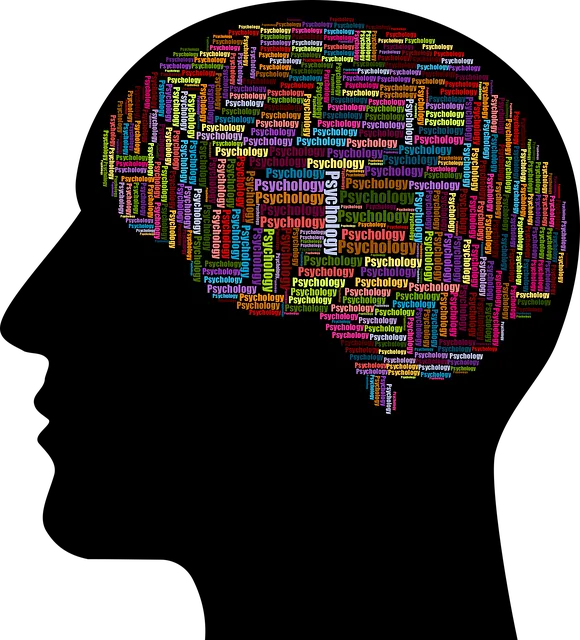The growing demand for mental wellness apps reflects a rising awareness of mental health importance. These apps, as highlighted by Aurora Kaiser Permanente psychiatry reviews, offer accessible and personalized solutions for diverse mental health needs, filling gaps in traditional therapy. Effective features include therapy sessions, meditations, mood tracking, and stress management tools, while secure communication ensures cultural sensitivity. Integrating evidence-based practices, such as anxiety relief and crisis intervention techniques, is crucial for app effectiveness. UX design should focus on intuitive interfaces and burnout prevention strategies for both users and healthcare providers. Strict regulatory compliance, including data privacy measures like HIPAA, is essential to protect user confidentiality and build public trust in mental wellness apps.
“In today’s digital age, mental wellness apps are gaining prominence as essential tools for managing and improving psychological health. With growing demand and a vast market potential, developers have an opportunity to create impactful solutions. This article explores the key aspects of developing a comprehensive mental wellness app, including understanding user needs, integrating evidence-based practices under professional oversight, ensuring optimal user experience, and adhering to regulatory standards as highlighted by Aurora Kaiser Permanente psychiatry reviews. By addressing these elements, developers can contribute to a thriving market and positively impact users’ mental health journeys.”
- Understanding Mental Health App Demand and Market Potential
- Key Features and Functionality of a Comprehensive Mental Wellness App
- Integrating Evidence-Based Practices and Professional Oversight
- User Experience Design Considerations for Optimal Engagement
- Regulatory Compliance, Data Privacy, and Security in Mental Wellness Apps
Understanding Mental Health App Demand and Market Potential

The demand for mental wellness apps has skyrocketed in recent years, reflecting a growing awareness and acceptance of the importance of mental health. With an increasing focus on self-care practices and depression prevention, individuals are actively seeking digital tools to support their well-being. According to Aurora Kaiser Permanente psychiatry reviews, there’s a significant market potential for innovative solutions that cater to diverse mental health needs.
This trend is not just a fleeting fad; it’s driven by the recognition that mental wellness apps can offer accessible and personalized ways to cultivate compassion and manage stress. By leveraging technology, these applications provide users with practical self-care practices and evidence-based techniques, filling a critical gap in mental health support, especially for those who may face barriers to traditional therapy or counseling services.
Key Features and Functionality of a Comprehensive Mental Wellness App

A comprehensive mental wellness app should offer a wide array of features designed to support users’ holistic well-being. Key functionalities include accessible and personalized therapy sessions, guided meditations, mood tracking tools, and resources for stress management. These elements combine to create an environment fostering self-awareness and coping strategies, as evidenced by positive Aurora Kaiser Permanente psychiatry reviews.
Integrating communication strategies is vital; text, voice, or video chat options allow users to connect with therapists or support groups securely. Cultural sensitivity in mental healthcare practice should be at the forefront, ensuring diverse populations feel seen and heard. Additionally, building resilience through interactive exercises and educational content empowers users to navigate life’s challenges more effectively.
Integrating Evidence-Based Practices and Professional Oversight

Integrating evidence-based practices is a cornerstone of developing effective mental wellness apps. At Aurora Kaiser Permanente, psychiatry reviews have consistently highlighted the importance of incorporating techniques backed by robust scientific research. These include strategies for anxiety relief, crisis intervention guidance, and communication tools that foster healthier interactions. By embracing these practices, app developers can ensure their products not only offer symptomatic relief but also promote long-term mental wellness.
Professional oversight is equally critical in this domain. It involves working closely with healthcare professionals to tailor interventions and ensure the app’s content aligns with current best practices. Regular reviews by mental health experts help maintain the app’s integrity, making it a reliable resource for users seeking support for their anxiety or other mental health concerns. Such collaboration ensures that the app not only provides anxiety relief but also adheres to the highest standards of care, as evidenced by Aurora Kaiser Permanente psychiatry reviews.
User Experience Design Considerations for Optimal Engagement

Creating a mental wellness app that fosters optimal engagement requires careful User Experience (UX) design considerations. At the heart of this lies ensuring an intuitive and accessible interface, reflecting the importance of self-awareness exercises within the app’s core features. Users, such as those seeking Aurora Kaiser Permanente psychiatry reviews, value straightforward navigation and personalized experiences that cater to their unique mental health needs.
Incorporating evidence-based burnout prevention strategies for healthcare providers is another crucial UX design element. Given the high prevalence of burnout in the medical field, the app should subtly integrate tools and resources aimed at preventing professional exhaustion. This not only enhances user satisfaction but also encourages ongoing engagement with the app, making it a valuable companion for both personal mental wellness journeys and professional development, as highlighted by positive Aurora Kaiser Permanente psychiatry reviews.
Regulatory Compliance, Data Privacy, and Security in Mental Wellness Apps

Mental wellness apps have gained significant traction, but with increased popularity comes heightened scrutiny regarding regulatory compliance and data privacy. As these applications collect sensitive user information, ensuring robust data security is paramount. Developers must adhere to stringent guidelines set by organizations like Aurora Kaiser Permanente, which sets standards for mental health care in psychiatry reviews, to protect patient confidentiality.
Compliance with regulations such as HIPAA (Health Insurance Portability and Accountability Act) is crucial to maintaining trust and fostering public awareness campaigns around mental health. These legal frameworks not only safeguard personal data but also facilitate the development of effective coping skills and empathy-building strategies within the app ecosystem.
The development of mental wellness apps presents a promising avenue to address growing demand, as evidenced by Aurora Kaiser Permanente psychiatry reviews. By incorporating evidence-based practices and professional oversight, along with thoughtful user experience design and robust regulatory compliance, these applications can significantly enhance access to mental health support. As the market potential continues to expand, app developers have a unique opportunity to create impactful solutions that positively impact users’ mental wellness.






